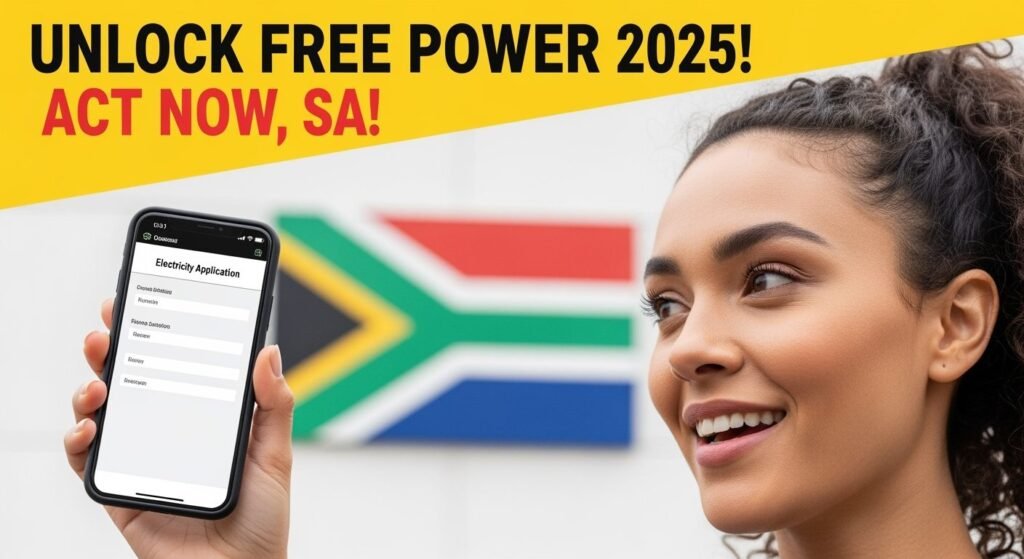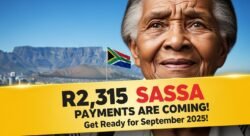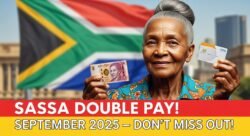Free Basic Electricity South Africa: As we approach 2025, many South African households continue to struggle with rising electricity costs. The Free Basic Electricity (FBE) program remains a crucial lifeline for vulnerable citizens, providing limited but essential power to those who need it most. I’ve noticed many people are confused about the qualification criteria, especially with recent policy updates. Are you wondering if you or someone you know might qualify for this vital support? Let’s explore the current eligibility requirements and application process to help you navigate this important social benefit.

What Is Free Basic Electricity?
Free Basic Electricity is a government initiative designed to provide a minimum amount of electricity at no cost to qualifying low-income households. The program typically offers 50-60 kWh per month, which is enough to cover basic lighting, media access, and limited cooking needs. This allocation, while modest, can make a significant difference for financially vulnerable families. The program forms part of South Africa’s broader social welfare system aimed at addressing energy poverty and ensuring that all citizens have access to essential services. The Free Basic Electricity South Africa program is implemented through municipalities and Eskom in different areas, with slightly varying application procedures depending on your location.
Who Qualifies for Free Basic Electricity?
Eligibility for Free Basic Electricity in South Africa centers primarily around income levels. Households are typically required to be registered on the municipal indigent register, which generally means having a total household income below a specified threshold (approximately R3,500 to R4,000 per month, though this may vary by municipality). Additionally, qualifying households must have a legal electricity connection and be registered with their local municipality or Eskom as the service provider. Pensioners, disability grant recipients, and child-headed households often receive priority consideration. The Free Basic Electricity South Africa program uses an approach called targeting, which aims to identify and support the most vulnerable households.
| Qualification Criteria | Details |
|---|---|
| Income Threshold | R3,500-R4,000 monthly household income |
| Connection Type | Legal, registered electricity connection |
| Registration | Must be on municipal indigent register |
| Priority Groups | Pensioners, disability grant recipients, child-headed households |
How to Apply for Free Basic Electricity
Applying for Free Basic Electricity requires visiting your local municipal office or Eskom service center with the necessary documentation. You’ll need to bring your ID document, proof of residence, proof of income (or lack thereof), and your most recent electricity bill or prepaid meter number. The application process involves completing an indigent household registration form, which will be assessed based on the qualification criteria. Once approved, the free allocation is typically automatically applied to your prepaid meter or reflected as a credit on your monthly bill. I recommend calling your municipality beforehand to confirm exactly which documents you need to bring, as requirements can vary slightly between different areas.
When Will Changes Take Effect in 2025?
The Free Basic Electricity South Africa program undergoes periodic reviews, with potential adjustments to both the qualification criteria and the amount of free electricity provided. For 2025, any changes to the program will likely be announced in the national budget speech and subsequently implemented at the start of the new fiscal year in April 2025. If you’re currently a beneficiary, you may need to re-register or confirm your details during the first quarter of 2025 to ensure continued benefits. Municipal communications about any changes should be monitored closely, as should announcements from the Department of Energy and your electricity provider. Have you signed up for notifications from your municipality? This could be a good way to stay informed about important updates.
Real-Life Impact: The Dlamini Family
The Dlamini family from Soweto represents a typical beneficiary of the Free Basic Electricity program. As pensioners with a monthly household income of R2,800, they qualified for the indigent register. Before enrolling in the program, they spent nearly 15% of their income on electricity. Now, with 50 kWh provided monthly at no cost, they’ve been able to reallocate those funds to better nutrition and medication. Mrs. Dlamini notes, “The free basic electricity has made a real difference in our lives. We no longer have to choose between keeping the lights on and buying food.” Their experience highlights how this program serves as more than just an energy subsidy—it’s a crucial component of social protection for vulnerable South Africans.







